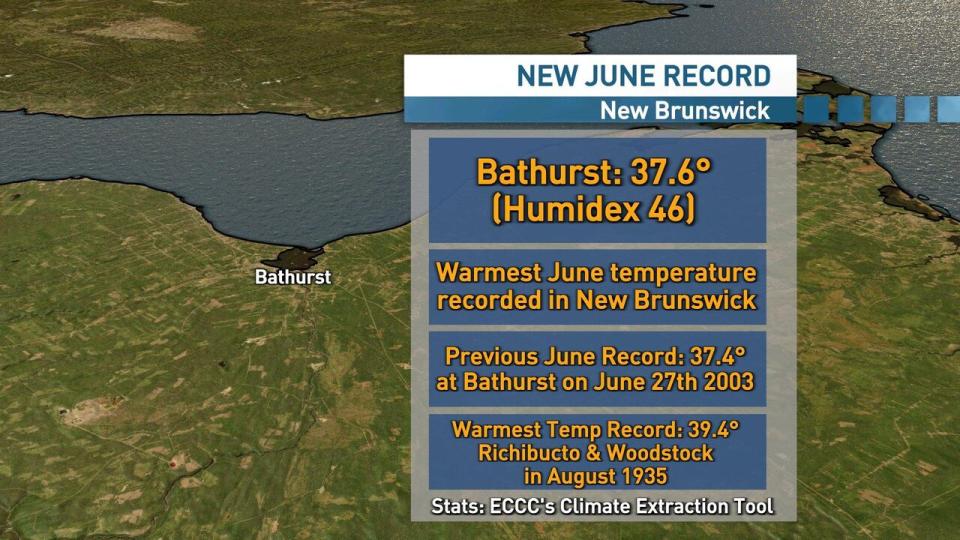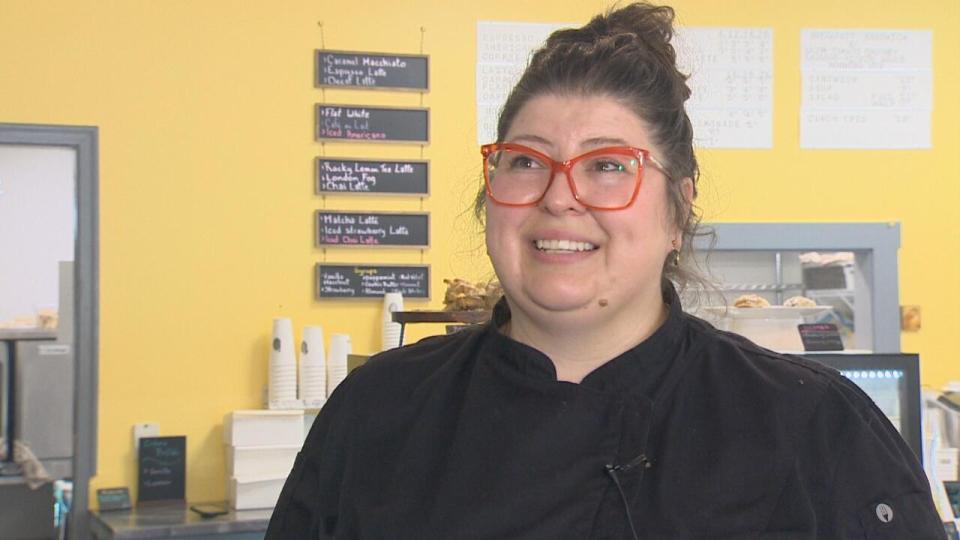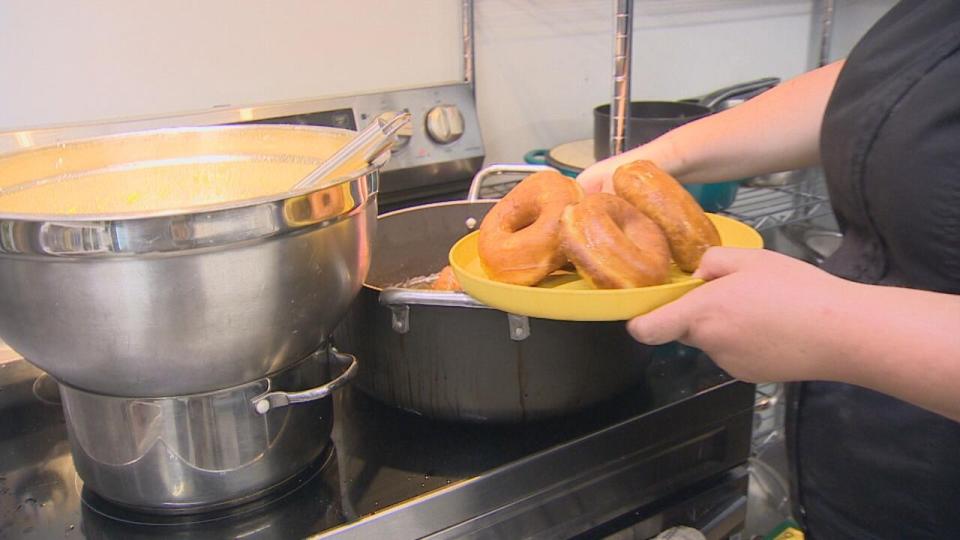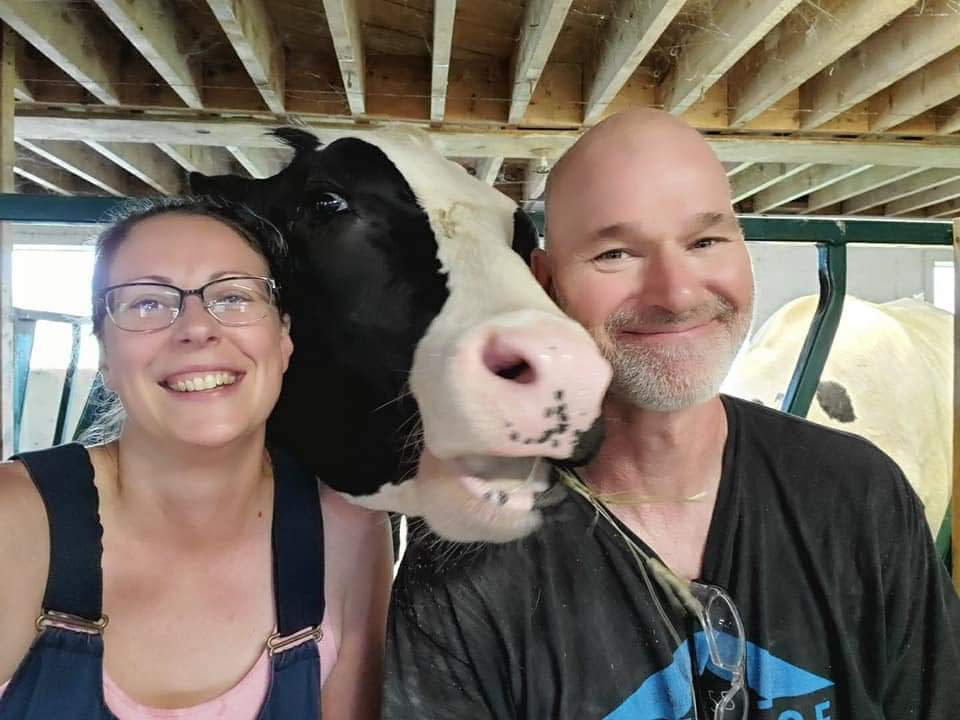Record-setting temperatures make for difficult conditions in kitchens, on farms
The past two days in New Brunswick have been hot, hot, hot, even setting record highs in some regions.
Bathurst recorded the warmest June temperature on record for the Maritimes, at 37.6 C., CBC meteorologist Ryan Snoddon said on X, formerly known as Twitter.
And according to Environment Canada, where a heat warning remains in place for the whole province, Miramichi was close behind, recording 37.2 C.
Other communities also had record temperatures in the mid-30s on Wednesday as well, including Edmundston, Fredericton and St. Stephen.

Much of the province also likely felt warmer, with the air feeling above 40 in some places because of the humidity.
The heat warning, according to Environment Canada, is expected to end after Thursday, but not before the province sees potential maximums of 30 to 35 C, with humidex highs of 39 to 45.
The high temperatures have even prompted some school closures and early dismissals for Thursday.
On Wednesday, while people likely didn't want to turn on their ovens to cook dinner, some restaurants were in similar situations.

Nada Wiltshire, the owner of the Rocky Lemon in Lincoln, on the outskirts of Fredericton, said they're lucky to have a small air conditioning unit in the kitchen, but the temperature was still excruciating, so it closed for the day.
Wiltshire said the kitchen was at around 60 C when the decision was made.
"It's just too much for our staff to be in a tiny, little kitchen with such high heat," she said. "The hospitality industry can be tough. It's really hard. And I just wanted to provide a space where I wasn't looking at the bottom dollar.
"I just wanted to create a space where people enjoyed their time, their food, loved to hang out with people, but I didn't want to have my staff working to the bone."
Farmers concerned for animals, workers
The extreme heat is also affecting farming.
Rébeka Frazer-Chiasson, who runs La Ferme Terre Partagée in Rogersville, said the last couple of days have been concerning for a few reasons.

"Obviously, we're concerned about crops and animals and making sure that they have enough water, but we're especially concerned about humans working outside, so we modify the tasks quite a bit," Frazer-Chiasson said.
"Even though it could be a perfect time for weeding, when most of the weeds that you uproot would die instantly in this sun, we're just not doing that in the afternoon, just because it's too, too dangerous for humans that are working outside."
She said adaption to conditions is easy when it's one or two days here and there, but it becomes more difficult when those days are more frequent.

She cited a statistic from Ontario's Provincial Climate Change Impact Assessment that was shared by the National Farmers Union on Tuesday. The stat says that by 2080, it is predicted that there will be 55-60 days of extreme heat over 30 C if nothing is done to curb emissions.
Zach Vanthournout, owner of EZ Acres Farm in Fredericton Junction, said he has been checking on his animals every hour in the extreme heat.
But still, even with his vigilance, he said, the farm lost a chicken to the heat.
He is also concerned about four calves that were born less than three weeks ago. He said he could tell on Wednesday that they weren't responding well to the heat.
For Thursday, he had his wife pick up extra fans to run for the animals.
Vanthournout said farmers are used to heat, but he hopes this heat dome is an anomaly.
"I hope we don't see more of it, you know, because it's really going to change a lot of things if there's much more of this."


